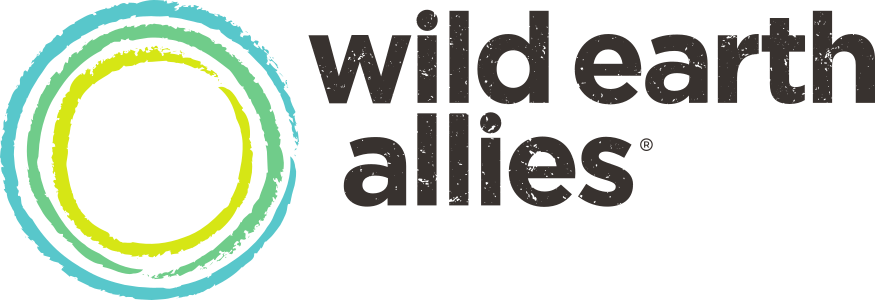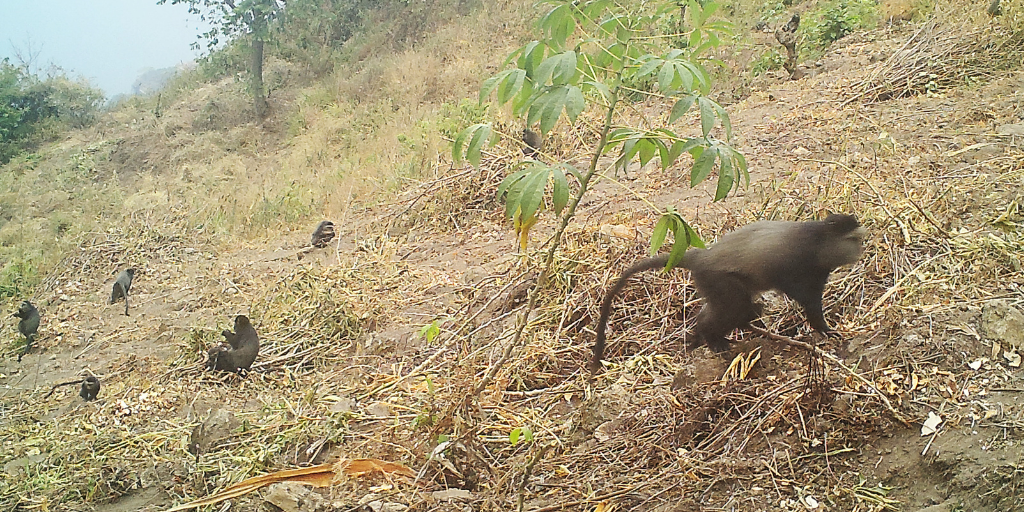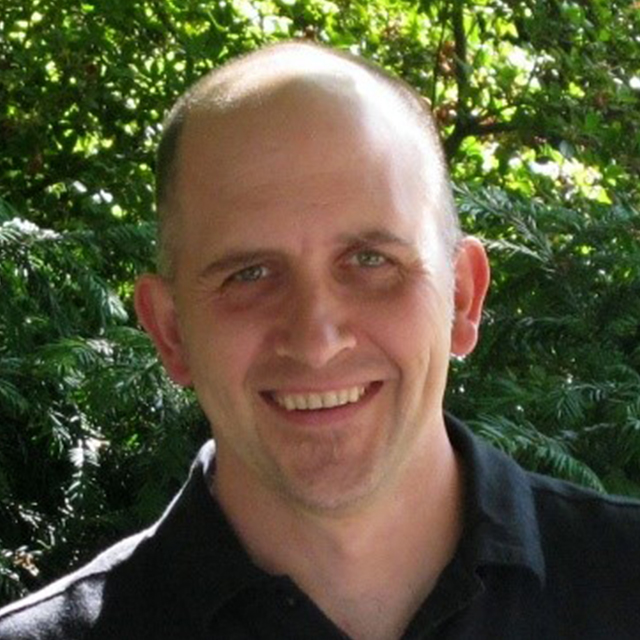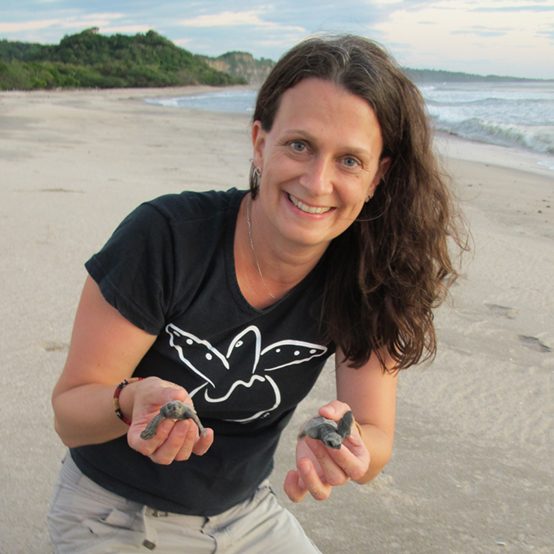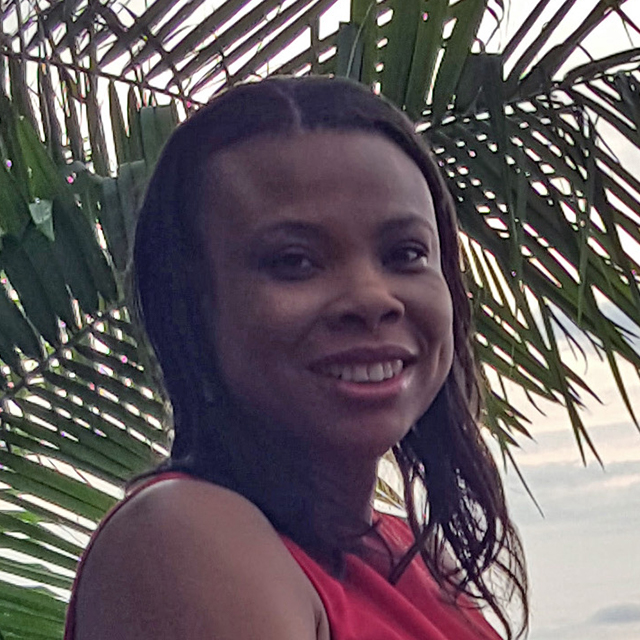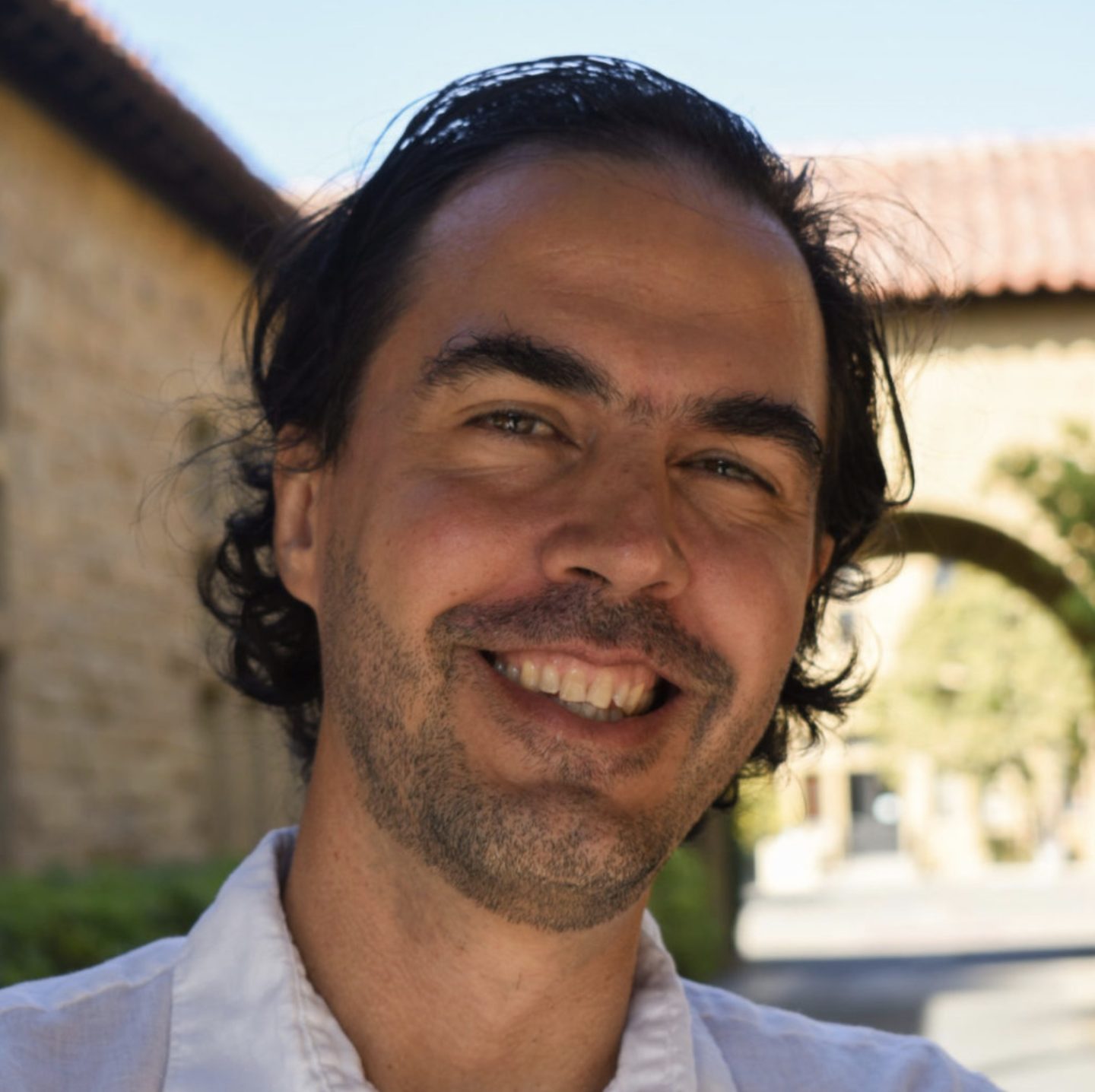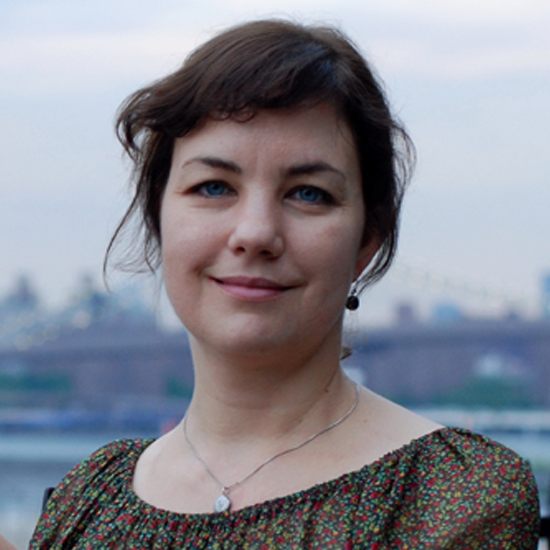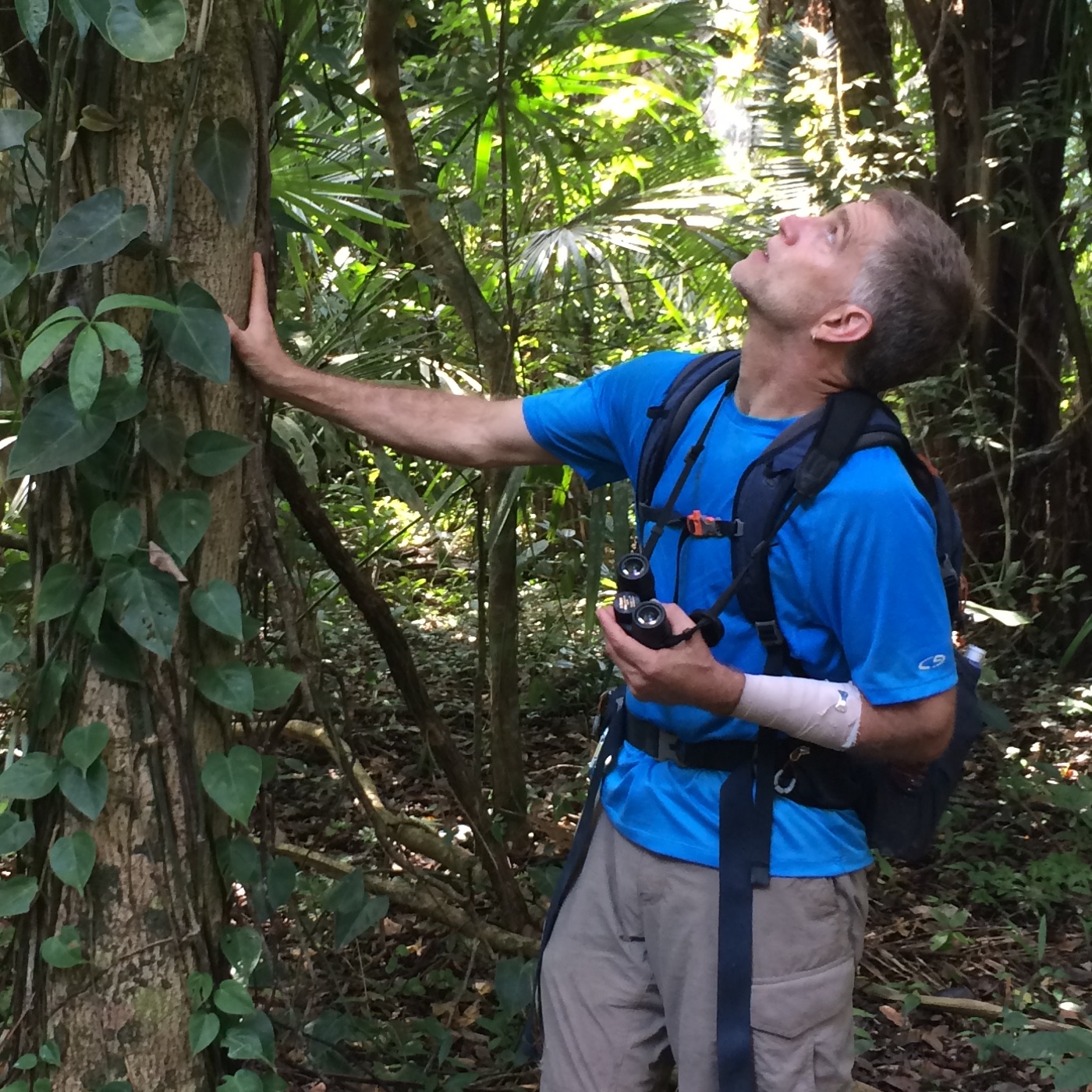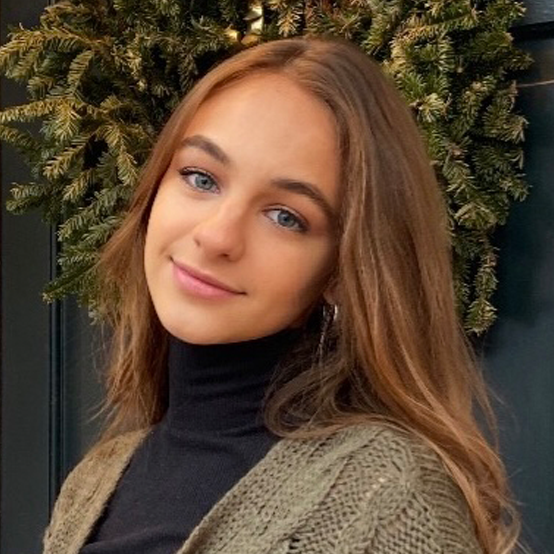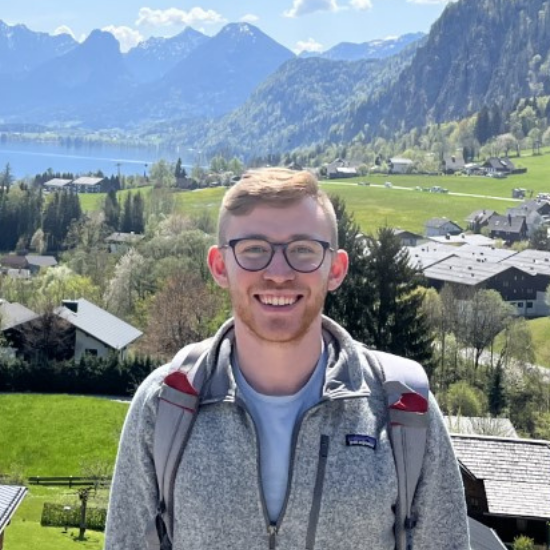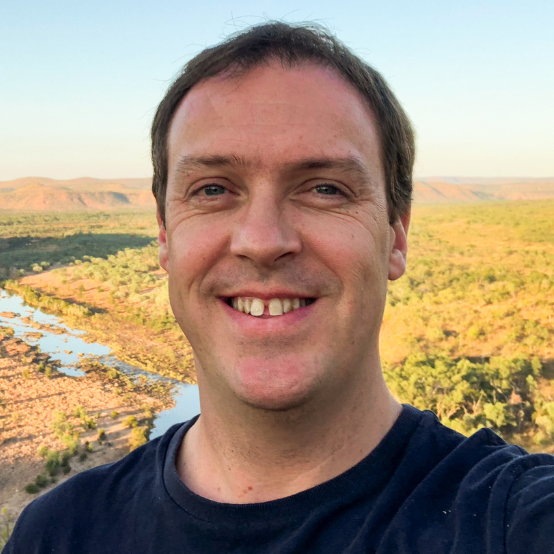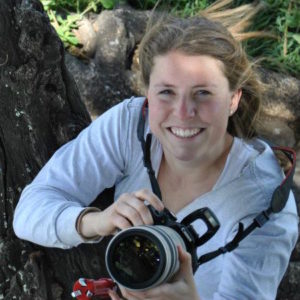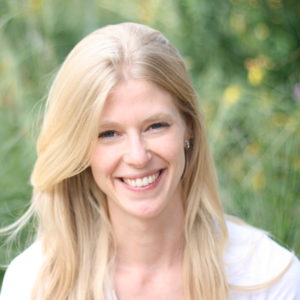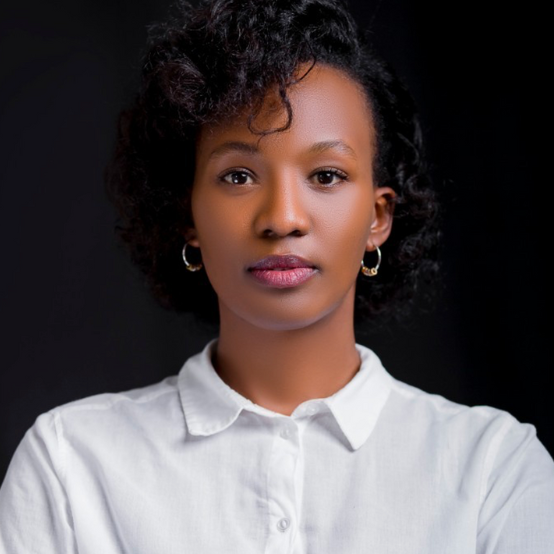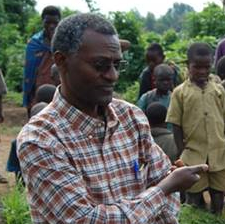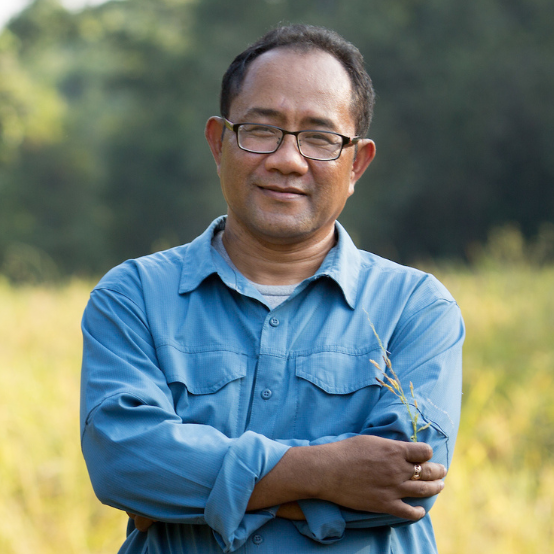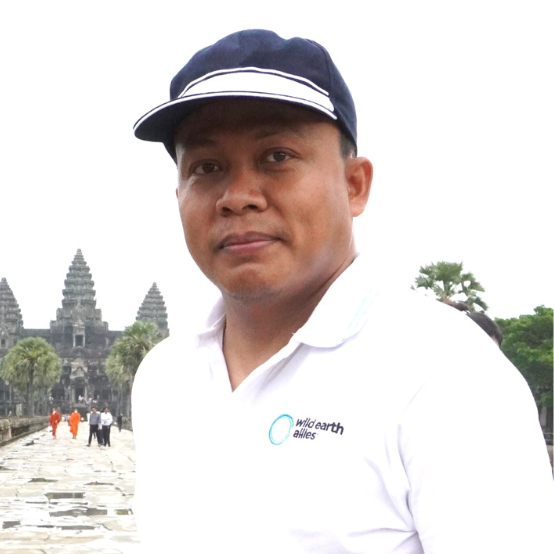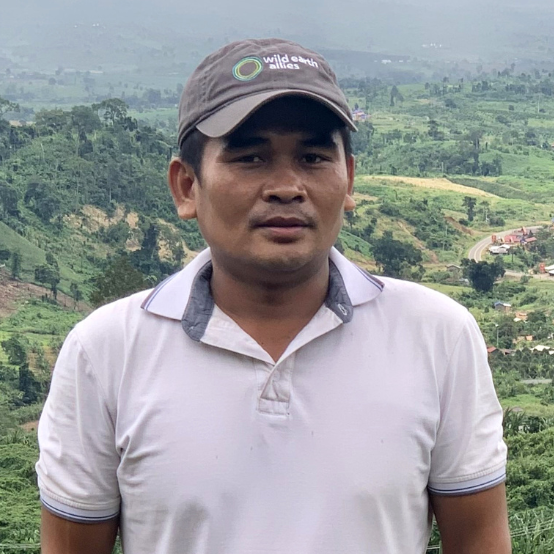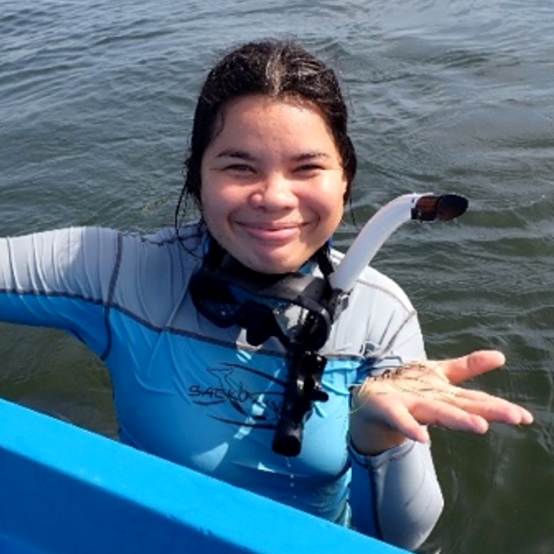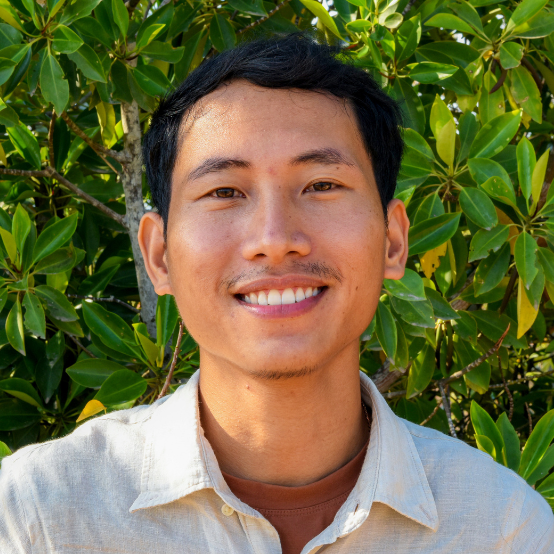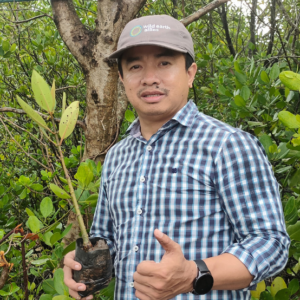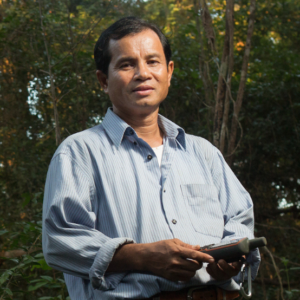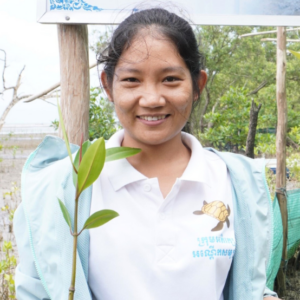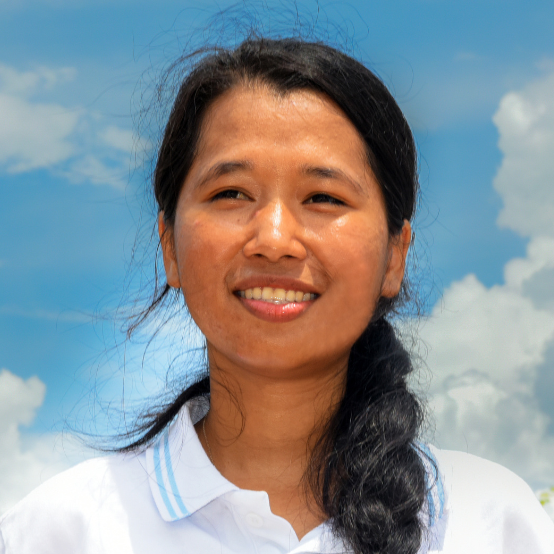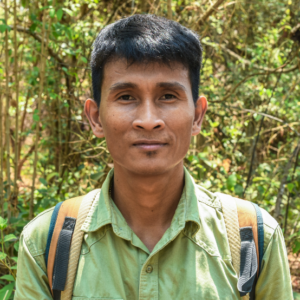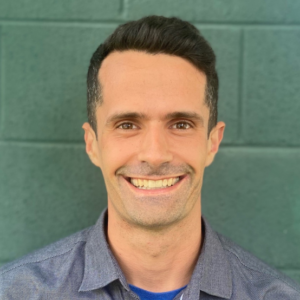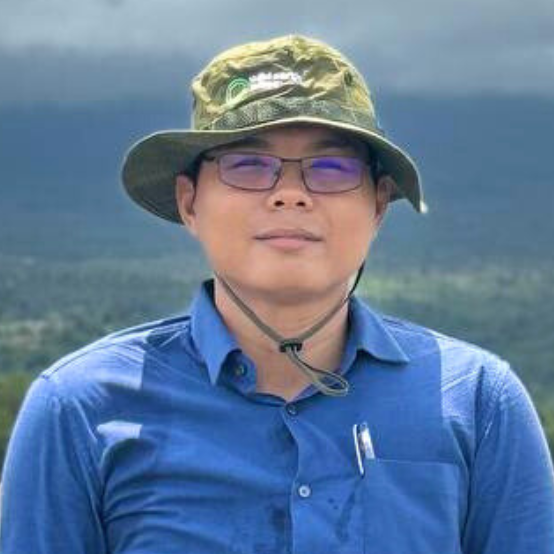Dr. Augustin K. Basabose is a primatologist, National Geographic Explorer, and Founder and Executive Director of the Congolese non-profit Primate Expertise. Wild Earth Allies has been a proud partner of Dr. Basabose and his team for more than seven years. Together, we work alongside communities to protect at-risk wildlife, including critically endangered Grauer’s gorillas, in ways that benefit people too.
Blue Monkeys Rediscovered
Idjwi Island is a rich ecosystem in Lake Kivu and part of the Democratic Republic of the Congo. Widespread deforestation on the island in the 1990s devastated local wildlife populations, including a rare sub-species of blue monkey (Cercopitecus mitis schoutedeni) only found on Idjwi. For many years, conservationists believed the sub-species was extinct. Recently, Wild Earth Allies’ partner and primatologist Dr. Augustin K. Basabose rediscovered a small population of this sub-species of blue monkey on Idjwi.
Camera trap footage of blue monkeys on Idjwi Island (Video courtesy of Primate Expertise)
Born and raised on the island, Dr. Basabose maintains close ties with families living close to blue monkeys. After reconfirming the monkeys’ presence, he knew engaging community members would be critical to their protection.
Dr. Basabose and his team at Primate Expertise mobilized community members to establish an organization called the Initiative for the Reforestation and Conservation of Idjwi (IRCFI). Together, they designed a long-term conservation program and advocated to local governments for the creation of a nature reserve. Due to these efforts, Idjwi Island and the Sud Kivu provincial governments designated the Idjwi Nature Reserve. The reserve will safeguard blue monkey habitat and promote tourism opportunities on the island.
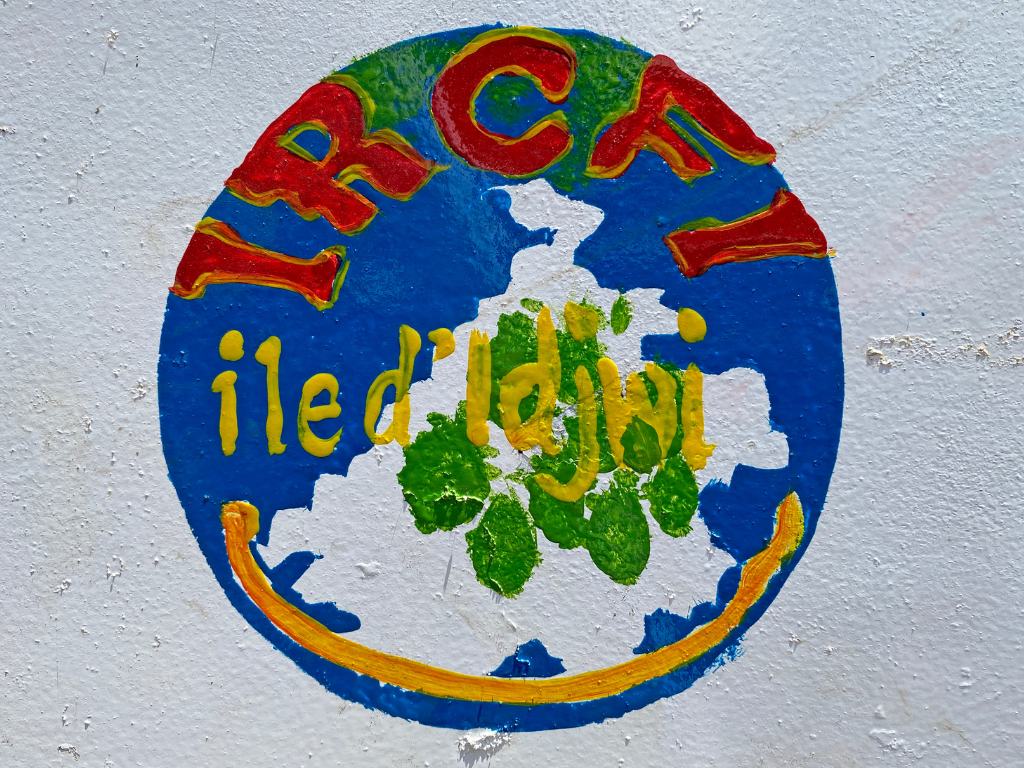
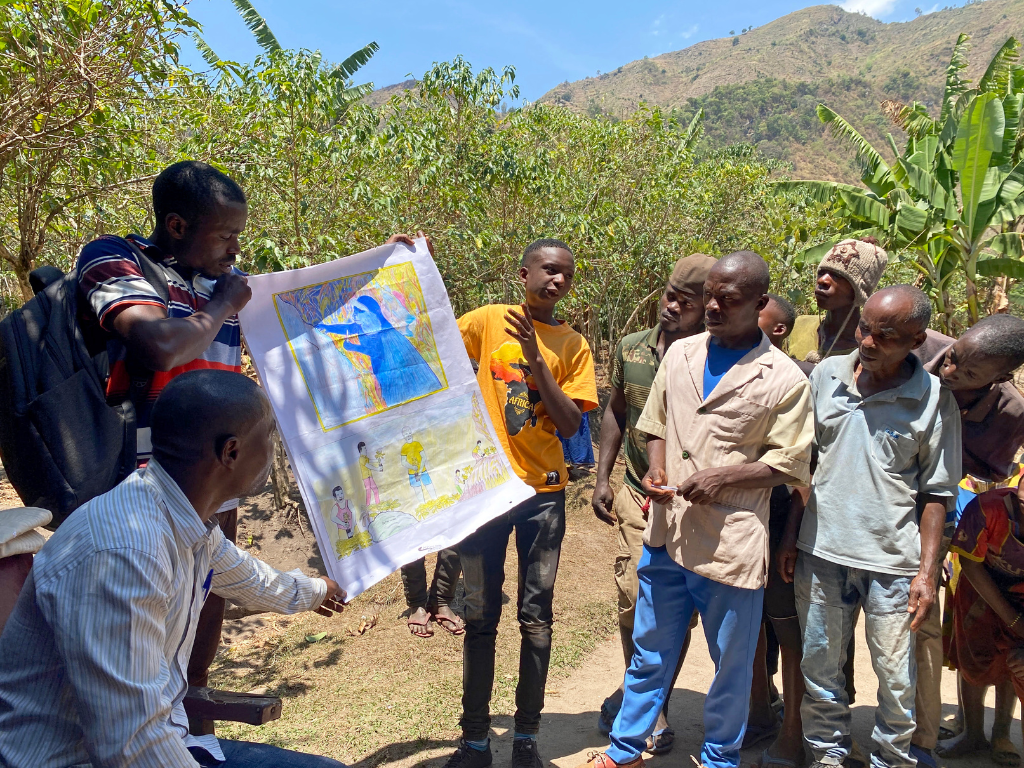
1) The logo for the Initiative for the Reforestation and Conservation of Idjwi (IRCFI) 2) Members of IRCFI discuss community engagement in blue monkey conservation. (Photos by Kelly Hogan)
The reserve is a 247-acre protected area that includes critical blue monkey habitat in the Bulolero forest. Primate Expertise collaborates with the government to lead the reserve’s operations and management with support from communities.
Wild Earth Allies is proud to collaborate with IRCFI and Primate Expertise to recover the island’s blue monkey population and enhance local livelihoods. Our efforts also improve the conservation of the Idjwi Island ecosystem, a globally recognized Key Biodiversity Area (KBA). A KBA is crucial to the planet’s health and the persistence of biodiversity.
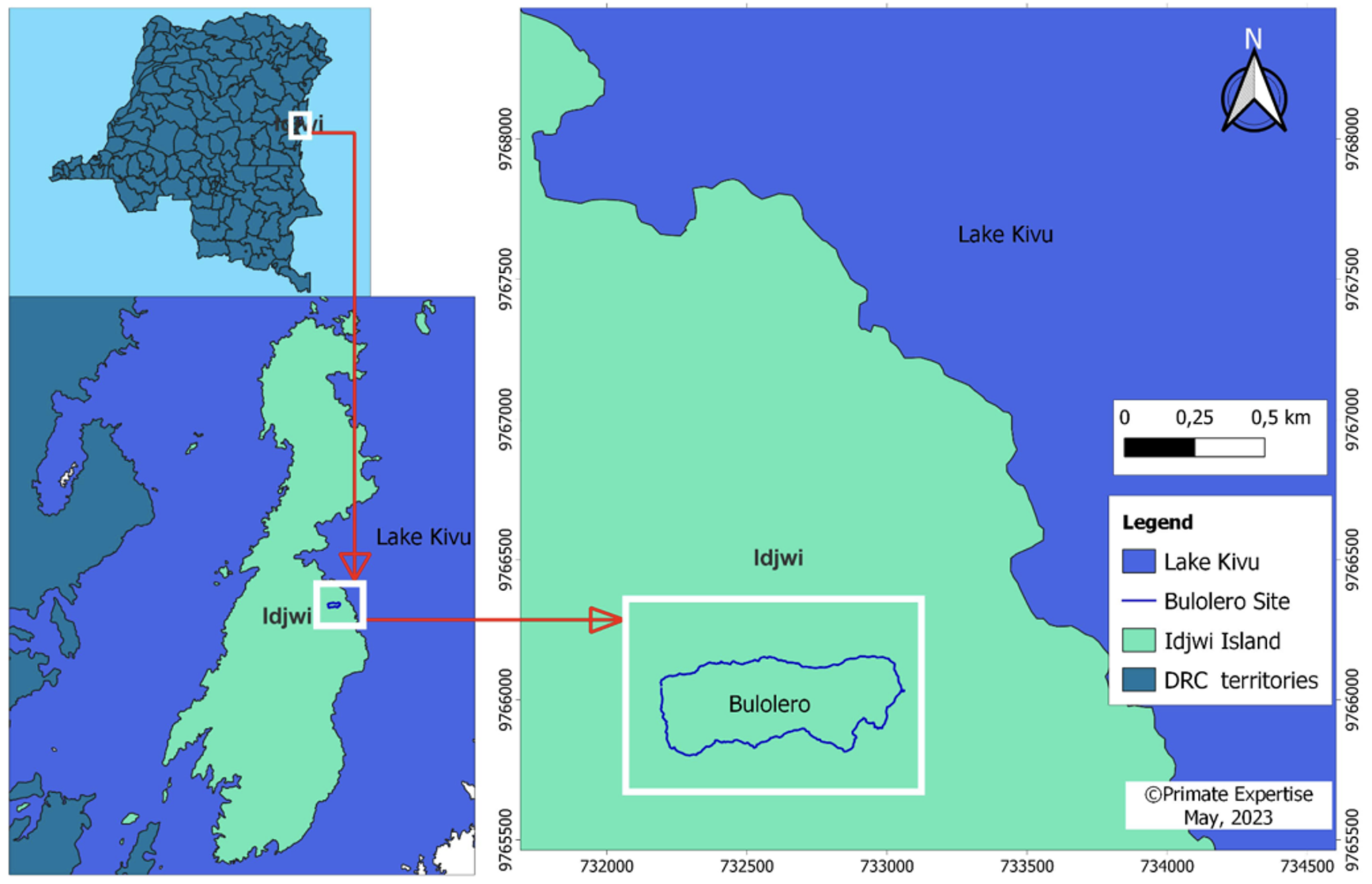
Maps show the location of the Idjwi Island Nature Reserve (247 acres), including blue monkey habitat in the Bulolero forest, Democratic Republic of the Congo. (Maps courtesy of Primate Expertise)
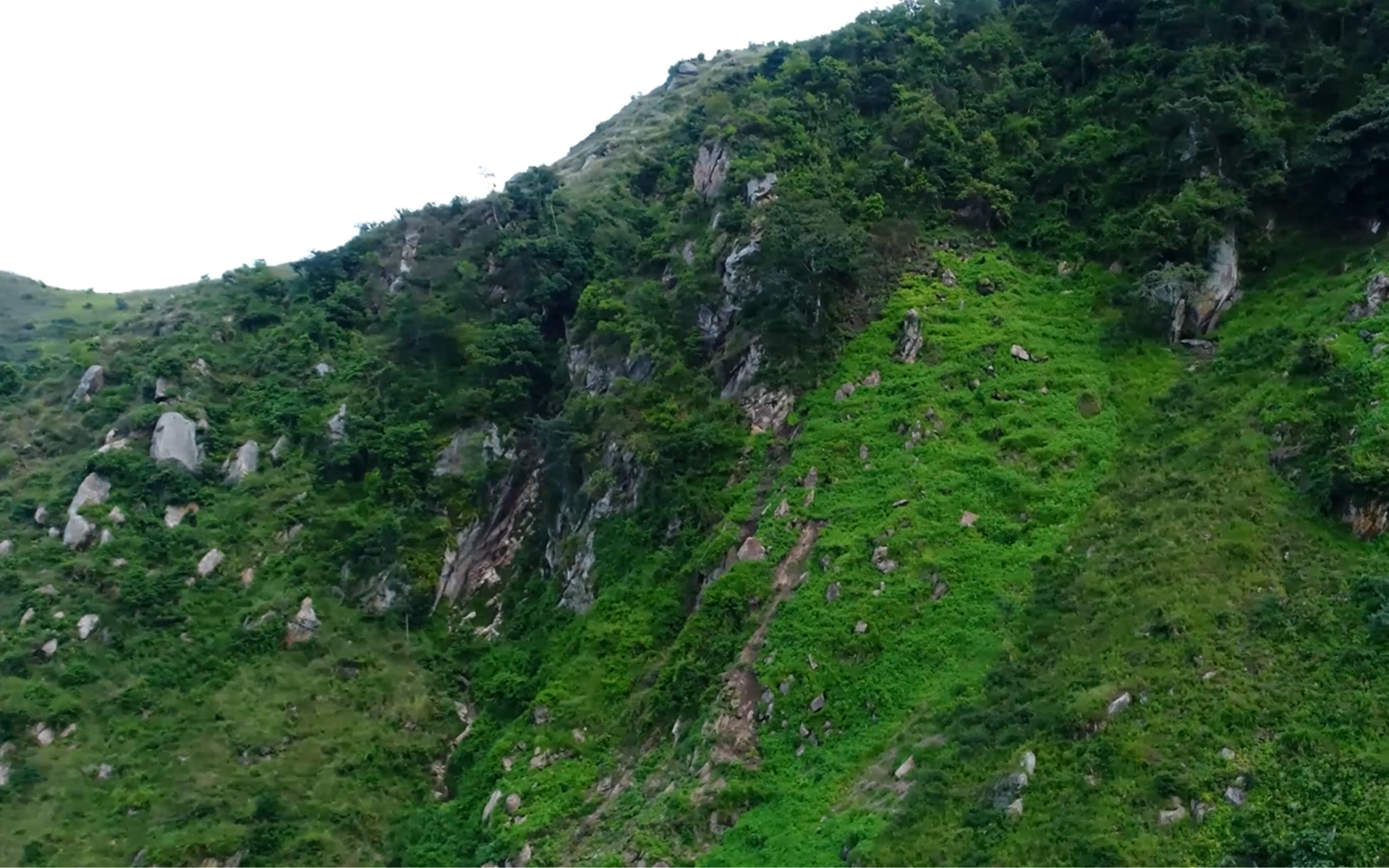
Drone footage reveals remnant forests on Idjwi Island. (Photo by Primate Expertise)
Reforestation of Blue Monkey Habitat
Primate Expertise’s innovative Ape Trees™ project is restoring high-quality forest habitats with native trees for blue monkeys. Through the project, Primate Expertise collects seeds from ape dung in Kahuzi-Biega National Park and grows them in tree nurseries. Together with communities, the team has relocated more than 2,670 seedlings to Idjwi Island. Early progress shows that the monkeys already use the young trees for shelter and food. The trees also benefit communities by reducing crop raiding by monkeys.
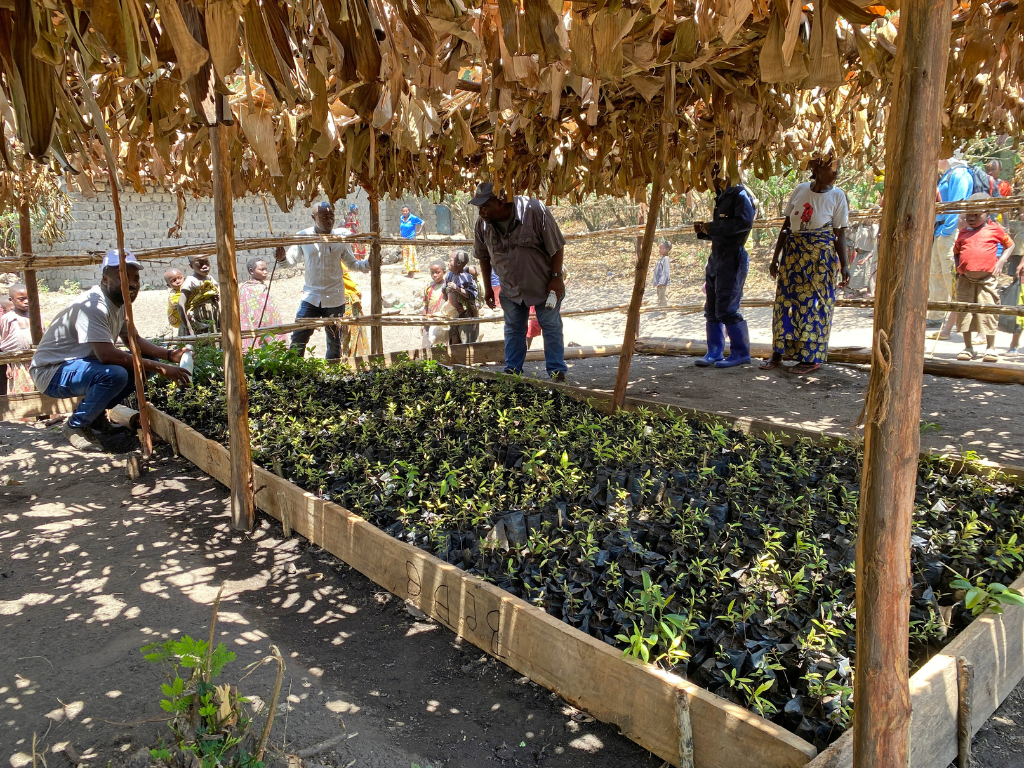
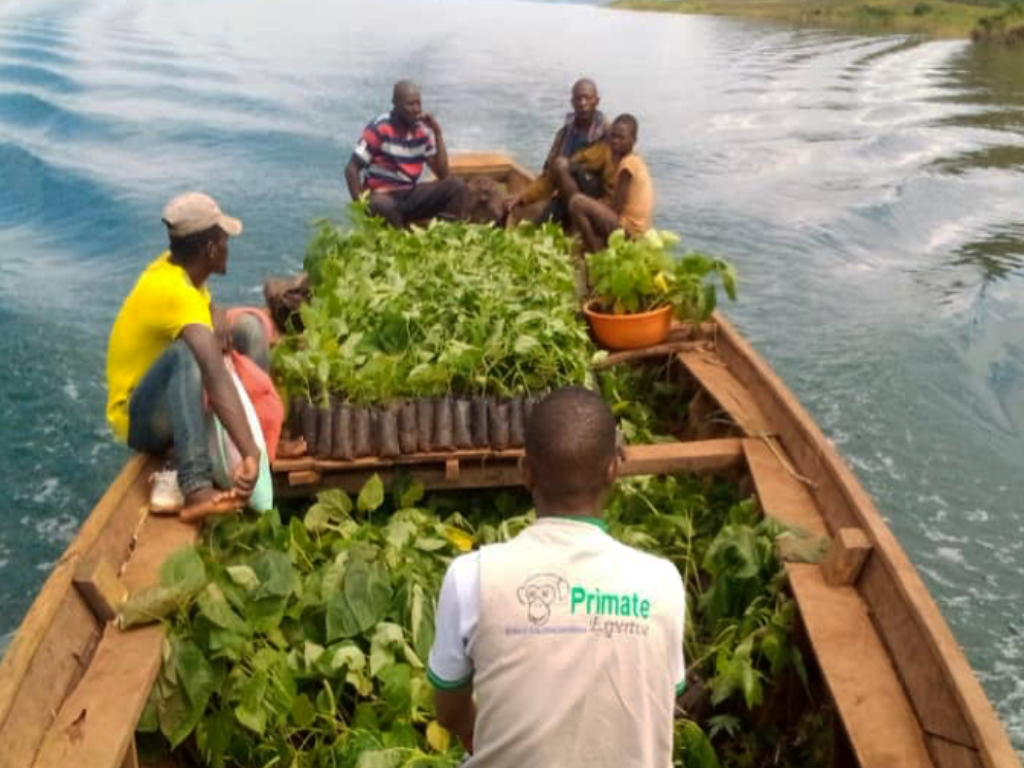
1) Dr. Augustin K. Basabose monitors seedlings at a nursery on Idjwi Island. 2) Primate Expertise team members move seedlings from a tree nursery near Kahuzi-Biega National Park to Idjwi Island. (Photos by Kelly Hogan)
Blue Monkey Biomonitoring and Protection
Primate Expertise established a long-term monitoring program with IRCFI to assess blue monkey population status and trends, habitat preferences, and behaviors. Camera trap footage shows evidence of a growing blue monkey population estimated to range between 60 and 100 individuals, including infants and juveniles.
Camera trap footage shows blue monkeys eating leaves from trees grown in an Ape Trees nursery. (Video courtesy of Primate Expertise)
Primate Expertise is also leading a comprehensive biodiversity assessment in the Idjwi Nature Reserve. The team is documenting all species of mammals, birds, reptiles, amphibians, invertebrates, plants, and fungi. These surveys will provide a strong baseline of Idjwi’s biodiversity to guide and measure future conservation efforts.
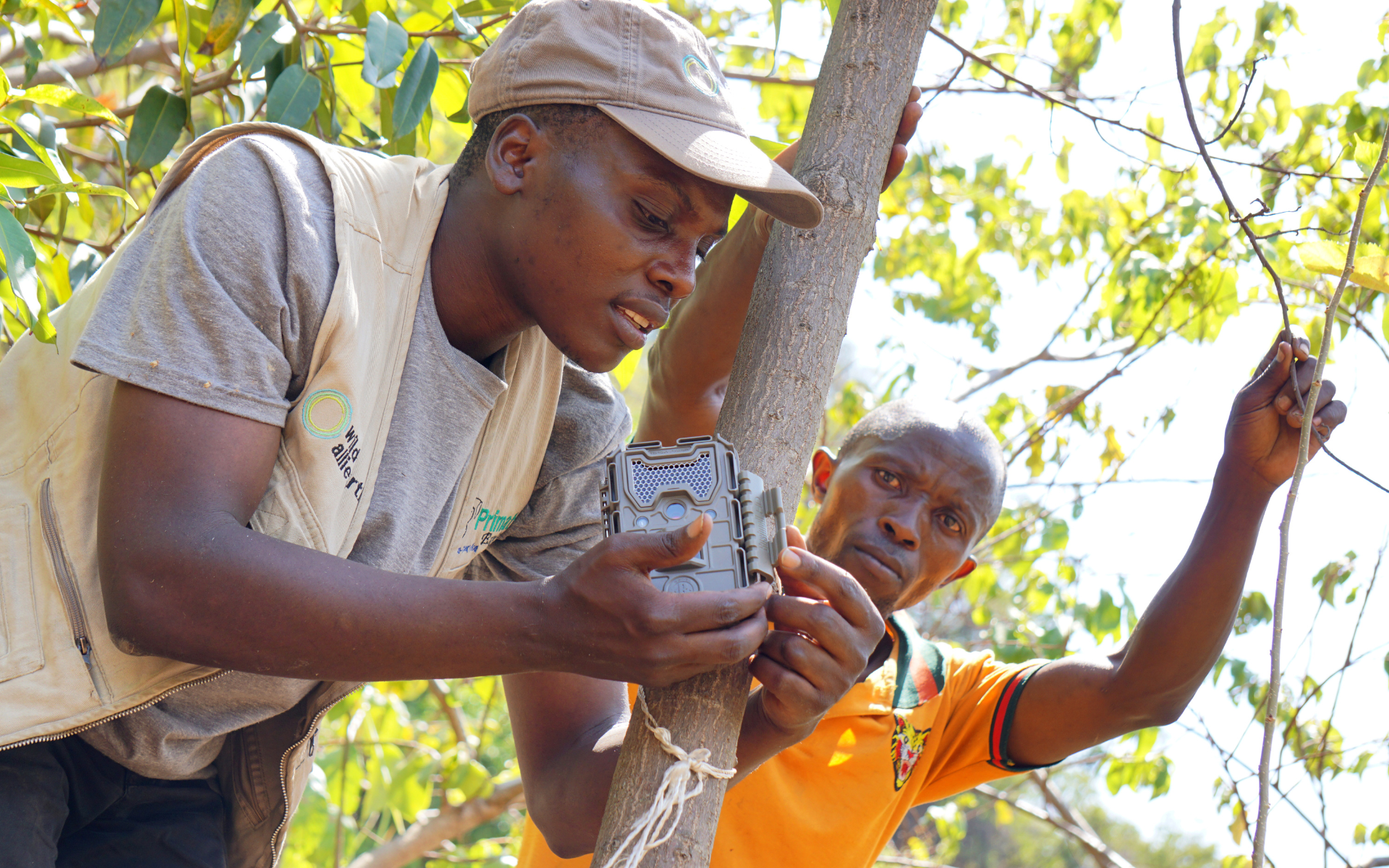
Primate Expertise Science Coordinator, Michael Baraka Nyakabeji, installs a camera trap on Idjwi Island. (Photo by Kelly Hogan)
Community Benefits Through Conservation
People living around the Idjwi Nature Reserve face many daily challenges. These include insufficient food and water, limited access to healthcare and education, and an overreliance on the environment for survival. Primate Expertise collaborates with communities to create livelihood pathways that benefit families and lessen the strain on the remaining forest fragments.
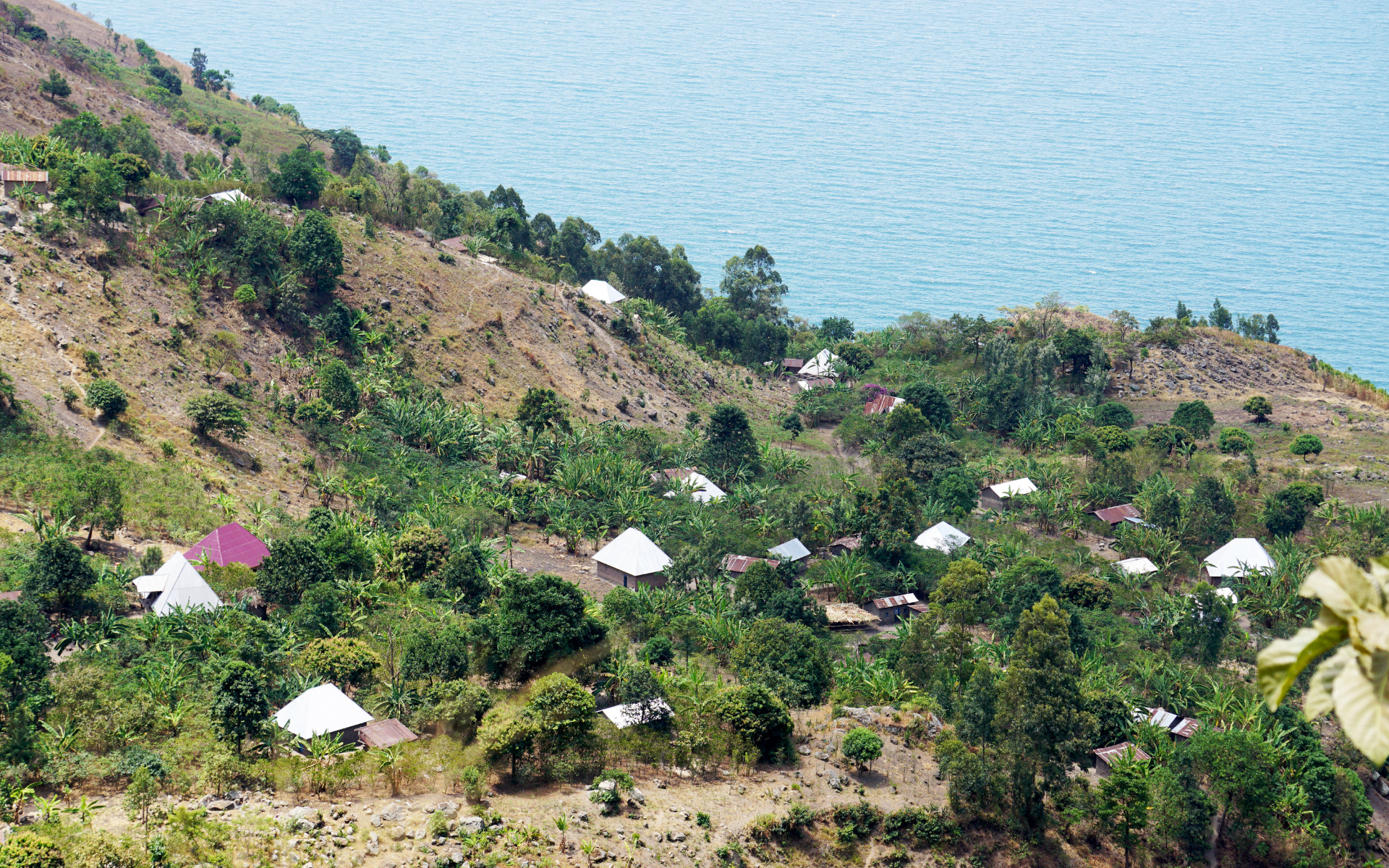
An aerial image of Idjwi Island shows a remote village near the blue monkey habitat. (Photo by Primate Expertise)
Primate Expertise’s growing community livelihood programs include vegetable and fruit cultivation, soap making, and sustainable fisheries. They are also enhancing food security through eco-friendly agriculture and livestock farming (permaculture program) and creating a plan to improve local drinking water access.
In 2023, Primate Expertise began building a community ranger outpost for the Idjwi Nature Reserve. The outpost will create jobs and strengthen the protection of blue monkeys and their habitat.
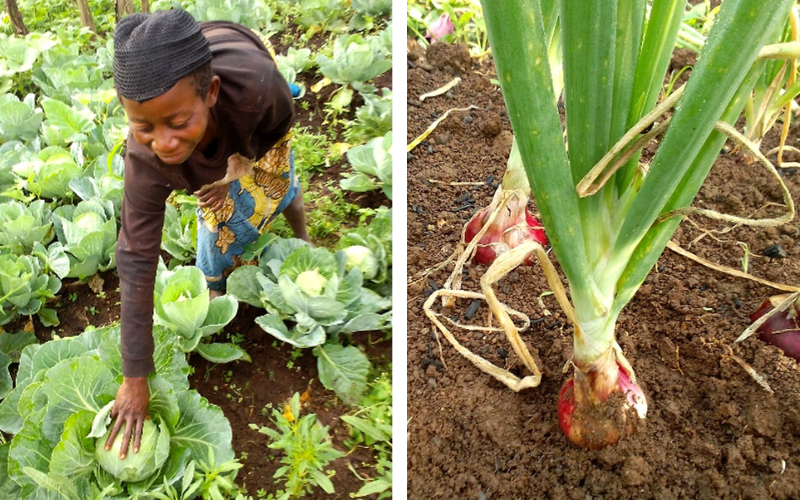
A woman tends to her vegetable garden on Idjwi Island. (Photos by Primate Expertise)
Inspiring the Next Generation of Conservationists on Idjwi Island
Primate Expertise runs Friends of Nature clubs in two nearby primary schools near the reserve. The clubs educate youth about the environment and inspire future Congolese conservationists. Students learn through activities like growing school gardens and making plant containers from banana leaves. As programming on Idjwi Island expands, Primate Expertise will involve more schools in the Friends of Nature clubs.
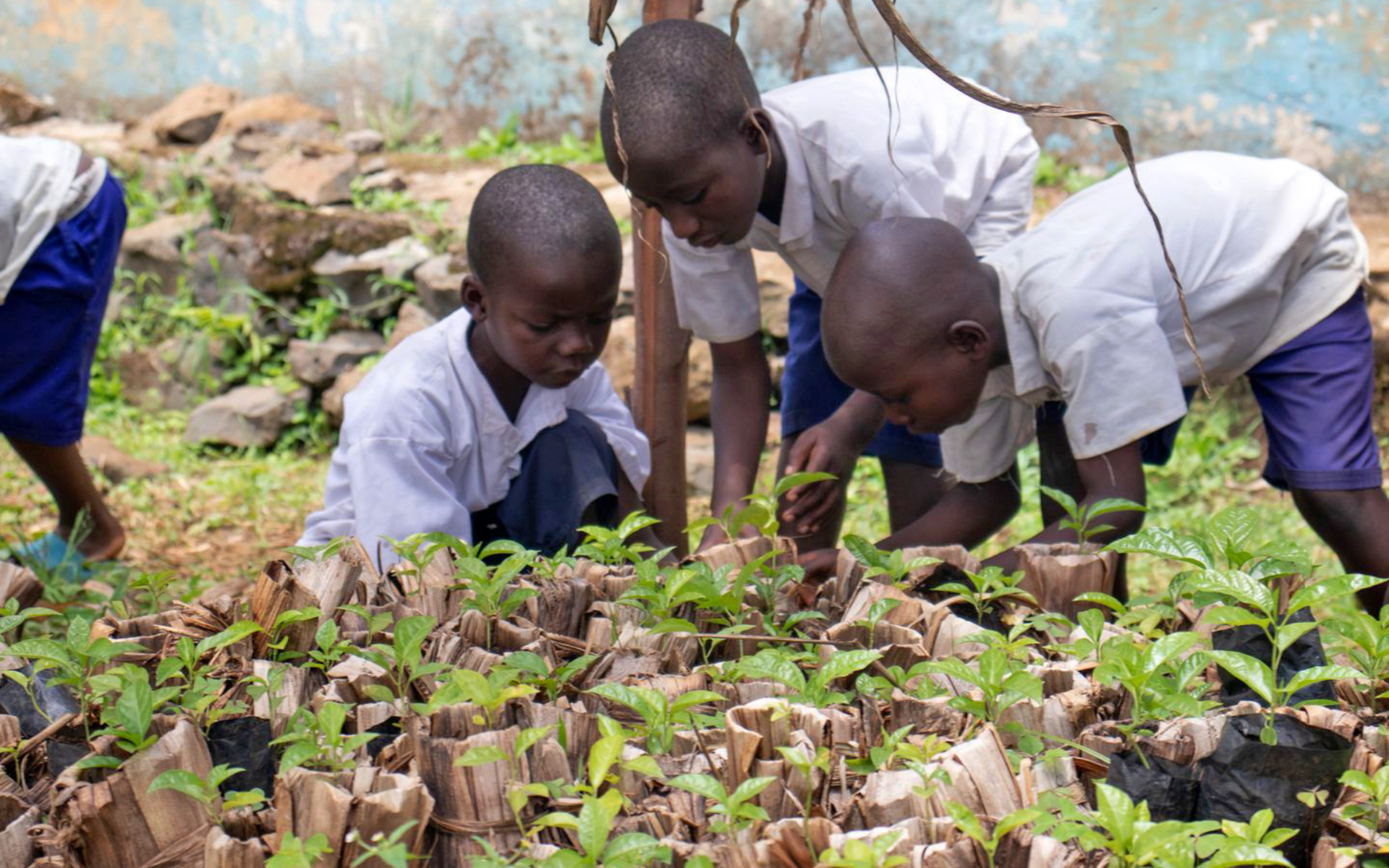
Members of a Primate Expertise Friends of Nature club plant seedlings at a school nursery using traditional pouches they made from banana leaves. (Photo by Primate Expertise)
What’s Next on the Idjwi Nature Reserve
Looking ahead, we will grow community-based conservation efforts on multiple fronts. In partnership with Primate Expertise, IRCFI, community members, and other local partners, we will:
- Conduct regular blue monkey censuses over time: We will further assess the conservation status of the remaining population of the blue monkey sub-species (Cercopitecus mitis schoutedeni) and document changes in population numbers, breeding success, and pressures.
- Increase reforestation: By expanding Ape Trees nurseries, we will grow 20,000 native tree seedlings for planting in the Idjwi Nature Reserve and along the Lake Kivu shoreline.
- Establish community medicine gardens: We will create two community gardens using trees from Ape Tree nurseries and other plants of medicinal value. The gardens will promote traditional knowledge about healthcare and provide important access for families living in remote villages around the Idjwi Nature Reserve.
- Ensure clean water access: Our current drinking water supply assessments will lead to improved household water access through reservoirs and pipe installation.
- Pilot aquaculture: With Lake Kivu artisanal fishers, we will pilot a crab aquaculture project and continue improving protections of fisheries and freshwater biodiversity.
Your support will help us create a thriving future for blue monkeys and the communities who live alongside them on Idjwi Island. Please make a gift today and follow our updates on Facebook, Instagram, and LinkedIn.

